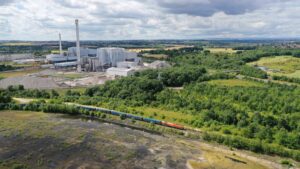Business leaders warn it’s ‘crunch time’ for infrastructure
Nearly three quarters of firms do not believe infrastructure in the UK will improve over the lifetime of this parliament, according to a new survey.
Published today, the CBI/AECOM annual Infrastructure Survey shows 74% of companies doubt infrastructure will improve over the next five years, with only one in five saying they are satisfied with the pace of delivery.
For the first time, the survey also includes the public’s views on infrastructure, which mirror those of business leaders with 76% doubting any improvement will happen over this Parliament.
Around two thirds (65%) of firms lacked confidence in the outlook for improvements around flood defences and waste.
The number of firms who believe devolution will lead to infrastructure improvements has slightly fallen from 47% last year to 42% in the 2017 report.
And around two thirds (62%) of firms reporting they are not confident that the UK’s competitiveness will increase by 2030 because of its infrastructure.
In terms of transport, 92% of firms said the delivery of the current Road Investment Strategy is critical or important, closely followed by improvements to local road networks (88%) and the current rail enhancement programme CP5 (88%).
More than two thirds (68%) of firms are not confident road infrastructure will improve. A similar number (65%) are not confident about improvements to aviation and 61% are not confident about rail.
The vast majority of companies (90%) said promoting housing as an infrastructure priority is either critical or important, but 88% are not confident the government will deliver its proposals in the 2017 housing white paper. And nearly two thirds (64%) are not confident that housing infrastructure will improve over this parliament.
In terms of energy, 98% of firms said it was critical or important the government set out a post-2020 power sector investment framework. More than half (58%) of firms are not confident energy infrastructure will improve.
Supporting investment in energy efficiency also emerged as a key priority, with 89% of
respondents seeing it as important, of which 28% thought it to be critical.
And all the energy providers surveyed said the government needs to set out a plan to provide a clear and long-term framework for energy policy.
Crunch time
The CBI’s director-general, Carolyn Fairbairn, warned it is ‘crunch time’ for UK infrastructure.
‘Our message is as clear as it is simple – this is no time for discussion and delays, it’s time for delivery,’ she said.
‘This needs to be heard not just by Westminster, but by local and devolved governments, as making progress on smaller, local projects is just as important as the bigger projects. Firms will not be forgiving if this focus slips,’ added Ms Fairbairn.
‘With continuing uncertainty over Brexit, it’s all the more important the government delivers quality infrastructure as a key pillar of a modern and effective Industrial Strategy, from excellent quality gateways to the world to a funding framework that gives investors the sustained confidence they need. It is a vital lever for spreading prosperity across the whole of the UK.’
The chief executive of civil infrastructure in Europe, Middle East, India and Africa at AECOM, Richard Robinson, added: ‘The next five years present a huge opportunity for the government to set in train a lasting legacy for future generations.
‘The link between transport and long-term plans for other vital infrastructure such as energy, water, waste and housing must also be considered. A clear vision for integration will be essential to accommodate the UK’s projected population growth and maintain economic prosperity,’ said Mr Robinson.
Photo by Network Rail 















